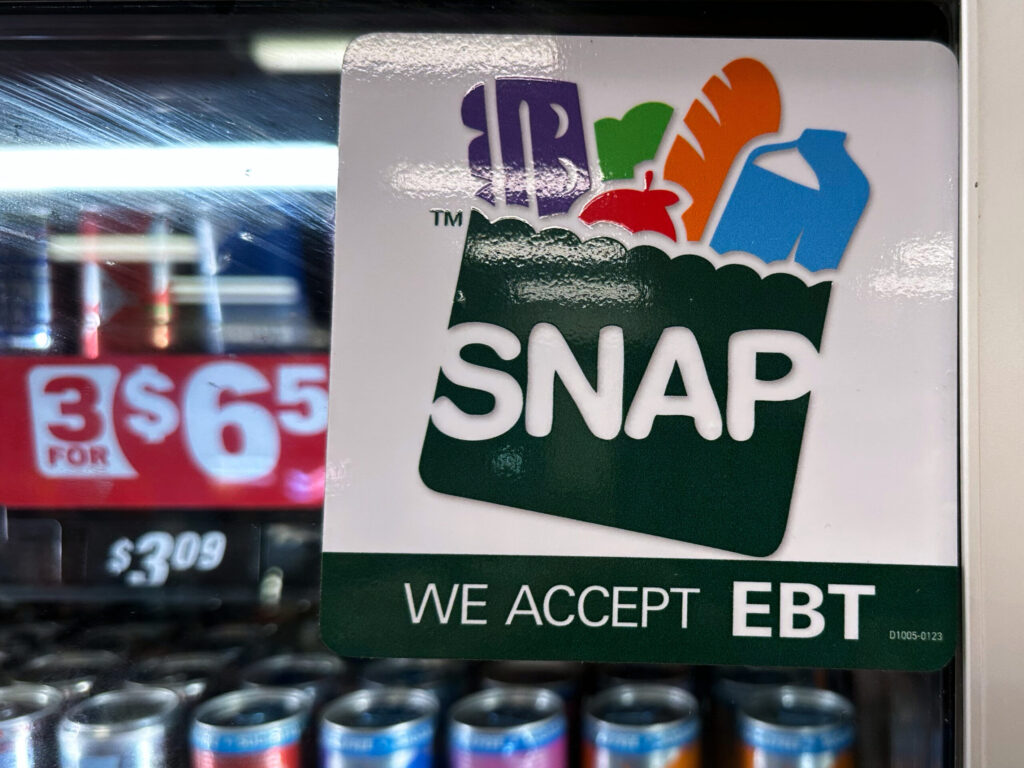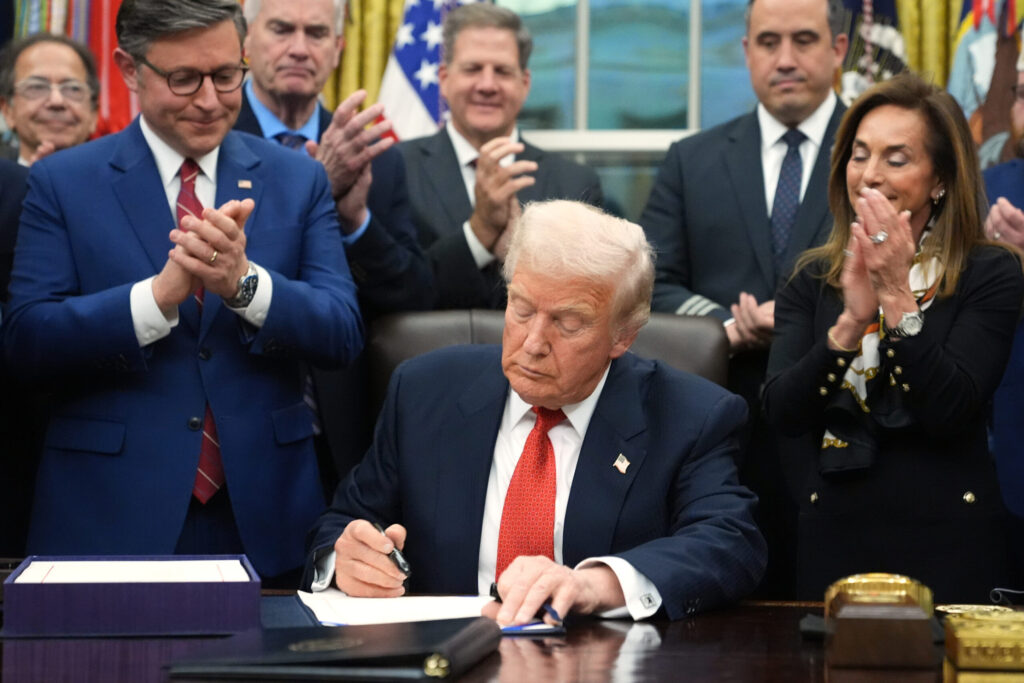Growing marijuana industry embraces regulations

“We want to regulate our industry.”
Have you ever heard a businessperson utter those words?
Stephanie Hopper says them — a lot. Hopper is the COO of Ballpark Holistic Dispensary, a pot shop two blocks down the road from Coors Field in downtown Denver. Her business booms every time Colorado’s baseball fans pilgrim to see their heroes in purple. Last year, in August — eight months after Colorado’s voter-approved law that legalized recreational marijuana went into effect — the store extended its assortment. Shoppers no longer needed a medical marijuana card. All they needed was any I.D., issued by the government, proving they were 21 years or older. After that, it was all, “Let the good times roll.”
Doesn’t that sound like a dream come true for any marijuana businessman (and woman)?
For Hopper, and so many other cannabis industry representatives, the rollout of the law has caused substantial headache. Today there isn’t much left of the initial euphoria the passage of Amendment 64 caused back in 2012, a dozen years after the voters first approved medical marijuana.
•••
Before you can pull back the door handle granting access to Hopper’s distinctly sweet-smelling store, two signs catch the shopper’s attention. “Cash Only” and, “ATM Inside.” How convenient.
Not really.
Like so many other dispensaries across the state, Ballpark struggles to get proper — meaning lawful — access to banking. Although recreational marijuana is legal in Colorado, financial institutions in the state are wary to do business with the industry. Federal law still classifies marijuana as a Schedule I illegal drug, alongsideheroin and LSD. What that translates to for banks is potential prison time for individual tellers, fines and the loss of the federal deposit insurance, which effectively means the bank would have to close its doors.
“What that has pretty much done is take a legitimate business and forced it to participate in money laundering,” said Tyler Henson, the president of the Colorado Cannabis Chamber of Commerce, which half a year after its August 2014 inception counts 20 member businesses from across the industry. Stephanie Hopper is part of the chamber’s Legislative Affairs Council, which lobbies state and federal lawmakers.
With no access to banking, marijuana businesses resort to cash-only operations or open bank accounts for shadow companies which they use to deposit or withdraw only small sums that may not get flagged. Playing an illegal game of cat-and-mouse, every time a financial institution detects an account affiliated with the cannabis industry, they shut it down. What’s more, they are required to file a “Marijuana Termination Suspicious Activities Report” with the Financial Crimes Enforcement Network, a branch of the U.S. Department of the Treasury. Federal officers compile those reports (475 of them just between February and August 2014, according to a Rocky Mountain PBS I News investigation) and could use those files to crack down on marijuana businesses in a moment’s notice — no matter what any state law says.
In February 2014, FinCEN issued guidelines meant to ease the marijuana industry’s access to banks. But the recommendations fell way short of any legal authorization — only the U.S. Congress can change that.
A co-signed letter of reprimand to the agency, sent from the offices of U.S. Sens. Chuck Grassley, R-Iowa, and Dianne Feinstein, D-Calif., made clear the overarching consent in the hallways of the U.S. Capitol is, “No way.” The letter called the guidelines “dangerously misleading” and read: “Following the guidance may expose financial institutions to civil or criminal liability.”
There are a few banks that conduct business with the cannabis industry nonetheless. But they safeguard themselves with astronomical fees, and access is scarce.
“Think of it as a private membership,” Henson said. “You have to know somebody who knows somebody to get a bank account — you have to be vouched for. No bank is just going to open the floodgates and accept everyone.”
What’s keeping the feds away from the doorsteps of Colorado dispensaries is the unsolved clash of state versus federal law, the on-the-quiet directive to turn a blind eye on those businesses in states with legalized marijuana as well as — more practically — a lack of funds. The Obama administration’s 2014 $1 trillion spending bill included an amendment that prohibits the Department of Justice to use federal dollars to go after legal medical marijuana businesses.
For Henson, that surface certainty isn’t good enough. He is concerned with the name Loretta Lynch, whom the president nominated to fill the shoes of departing Attorney General Eric Holder. Lynch has publicly stated that she does not share the same position on marijuana.
“We might see a 180 on the handling of this issue if she gets (confirmed),” Henson said.
•••
“People who are working in this industry legitimately want to be transparent,” Hopper said. “But unfortunately we are not able to be as transparent as we would like to be because we are not given the opportunity.”
Hopper and Colorado marijuana businesses have the support of Democratic U.S. Rep. Jared Polis, who introduced legislation last week that would allow the cannabis industry access to banking, among other things. But in the Republican-led Congress, the bill is likely to end up on the legislative graveyard.
For Hopper’s business, Ballpark, the status quo means navigating the system. They stock up ATM machines and pay employees and vendors in cash — “anything that reduces the pile,” Hopper said. Whatever is left over gets carried to safehouses or deposited in several bank accounts – carefully making sure not to surpass $10,000 transactions, which automatically get flagged. Hopper tells stories of colleagues and friends, who at the end of the business day send out three people —one person has the cash, two others serve as decoys. To prevent getting robbed, they change delivery times and personnel, too.
•••
These strategies provide a glimpse into the soul of a voter-approved industry that is struggling with a sense of legitimacy. Never mind the shiny storefronts — selling marijuana is still somewhat of a shadow business.
The secrecy jumps exponentially when anyone takes a look at how marijuana is being produced.
Strainwise Consulting provides professional consulting services to production operators across the state, currently working for five grow facilities. The largest one, clocking in at 60,000 square feet, is located in a plain-Jane industrial area, on the northeast edge of Denver.
No signs point to what’s inside the large warehouse. Neither the business director nor the facility manager wants to see their name in print. There is, they say, still a stigma that goes along with working in the cannabis industry. And while they both insist that they are at peace with what they do, they rather do so quietly.
Inside the warehouse: Curious looks from the dozens of 20-somethings whose one and only task is to churn out as much as 6,000 pounds of marijuana in a month. They don’t see strangers in here often. Everyone needs to sign in and out. They have security cameras looking over their shoulders constantly. Access to the trimming and packaging area is limited to a select few. Every ounce of produce gets weighed and tracked. It’s a tough regiment.
“The fantasy and reality of producing marijuana are two totally different things,” the facility manager said. “It’s not the image of smoking pot all day. Rather, it is hard work — you get sweaty and dirty.”
In fact, there is a golden rule: Show up to work high, and you’ll get fired on the spot.
Over and over again, the manager, a Colorado native and combat veteran, wants to make sure he comes across as a legitimate entrepreneur.
Despite the raucous environment and the shroud of anonymity, jobs here sell like hotcakes. Youngsters from all over the country flock to Colorado to work in the cannabis industry. They come from liberal epicenters and Bible-belt bastions alike. Most of them used to grow at home. The manager doesn’t take applications. He taps into a network of contacts, asks for recommendations whenever there is a job to fill. If he were to post one position on Craigslist, hundreds would send their resume, he said. To fill the job, the warden of the blaze is looking for a basic, but very particular set of values: Honesty, hardworking, availability, following directions. One can’t help but notice the militaristic undertone. He is overseeing an army of growers. Each of the seven flower rooms with its roughly 1,000 plants requires 120 manhours of care per week.
Marijuana is a popular good. The marching orders in the warehouse are clear: Produce, produce, produce.
•••
Back in the Ballpark store, Grizzly, the German shepherd dog, gently but persistently taps Hopper’s leg, asking to play ball. But Hopper’s mind is in a different place.
The story of why she isn’t afraid of the pot stigma takes her to some of the darkest hours of her life.
In January 2013, Hopper — then a delivery manager for Verizon, making use of her degrees in information systems and telecommunications — found out that her mother was diagnosed with stage-4 brain cancer. The family scrambled to ease her pain. But they never thought of medical marijuana.
“I realized I don’t have any information on marijuana even though we could have legally gone out and purchased it,” Hopper said. For her, every measure to give her mother some dignity in her last weeks would have been right.
Her mother’s death got Hopper involved in the Cannabis industry. Her experience working with regulators in the telecommunications industry — “a very dirty industry, lots of dirty tricks,” she said — helps her today.
•••
Albeit frustrating, access to banking is not the most pressing issue, Hopper said. She presses for the declassification of marijuana, to move it from a Schedule I to a Schedule II drug, which would allow the Food and Drug Administration to step in and support research on the medical benefits. From there on out, Hopper argued, everything else would fall in line automatically.
“The research provides education,” she said. “The education is what’s going to sway public opinion. We will get banking and more people who are willing to support us. It will also help us with the IRS [allowing to deduct business expenses].”
Hopper is well aware that the U.S. government won’t just wake up one day, with a changed heart, ready to grant marijuana the federal nod of approval. It takes sacrifices, and a lot of good-will showing, she said.
The Ballpark COO makes the case that marijuana should be regulated the same — meaning strict — way as prescription drugs or any other restricted substance, which includes child-proof containers and keeping the product out of the reach of minors to prevent potential physically harmful abuse.
As they try to rein in on the still vibrant black market — whether those illegal deals happen on street corners or on Craigslist — both Henson and Hopper support SB 14, which would drastically alter the caregiver model of growing medical marijuana.
Caregivers are tasked to grow for patients unable or unwilling to ensure their own supply of medical marijuana. But recent news reports, such as the story of an Avondale man allegedly growing 600 plants although he only had enough patients to grow 75, cast a negative light on the industry as a whole, the lobbyists argue. What they leave out: The resulting black-market supply also hurts their business model.
The bill, which Sen. Irene Aguilar, D-Denver, and Rep. Jonathan Singer, D-Longmont, introduced on the first day of the 2015 legislative session, would require each caregiver to get a license and register. That way, law enforcement would be enabled to get a better hold of those who operate outside the legal boundaries.
“The abuse probably already existed before [the legalization],” Hopper said. “In order to move forward on the state and federal level, people will have to give up some things, which could be the ability to grow at home, or to be a caregiver who is not licensed. Those things may have to go away in order for this to succeed as a whole.”
The Cannabis chamber also pushes for a standardization of testing metrics to ensure accuracy across the board. Additionally, they push SB 136, co-sponsored by Sen. Owen Hill, R-El Paso, and Rep. Dan Pabon, D-Denver. The bill aims to make labels more consumer friendly, with bigger warning signs and a website reference to lab information.
•••
A recent Quinnipiac poll found that support among Coloradans for marijuana is on the rise. Fifty-eight percent supported it, while 38 percent were against it. In 2012 53 percent of voters approved Amendment 64. Since recreational marijuana use became legal on Jan. 1, 2014, one in five Coloradans have lit up.
While the industry is growing local support, Henson believes it will take at least one large state such as Florida, Ohio, New York or California to follow suit before Congress will reconsider its stance.
And then there are other, often-overlooked practical implications of a reclassification of marijuana.
“We have hundreds upon hundreds of treaties with other nations that revolve around drug trafficking,” Henson said. “Marijuana is included in those. So if we legalize it we have to go back and amend those treaties.”
•••
The business hours slowly pick up speed at Ballpark Holistic Dispensary. In no moment do the wish for legitimacy, business aspiration and outright pleading mingle so markedly in Hopper’s voice as when she repeats that marijuana businesses are trying to do the right thing and are contributing significantly to the state economy.
“We are hoping the federal government is taking note that we are here to be legitimate. We are actively working on maturing our industry all in positive ways. We are working to self-regulate and to come together to find solutions, because we have to move faster than the federal government. We hope that the government looks at this and can say, ‘Let’s give them a chance.’”
—Lars@coloradostatesman.com
Colorado Politics Must-Reads:














